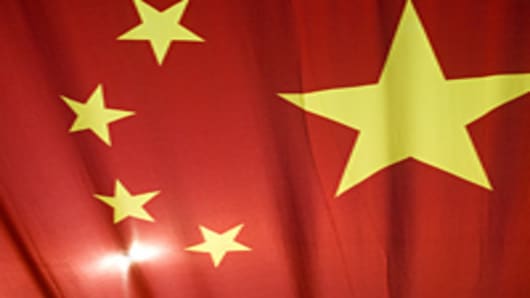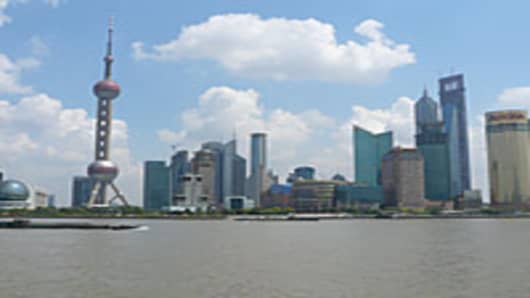Washington Post columnist John Pomfret argues the recent test flight of the J-20 stealth fighter just hours before U.S. Defense Secretary Robert M. Gates met with Chinese President Hu Jintao was a blunt challenge by the military establishment to Hu's power. (Click here for Youtube video of the fighter jet) Pomfret surmises there is chaos within China's political circles because it appeared to Gates that Hu did not know of the test. Pomfret's hypothesis would certainly be a scary if true.
But is Pomfret right? Is the military really taking on President Hu in a power struggle? Is China about to crack?
Far from it. The opposite is true. President Hu is undoubtedly quite in control of China and displayed his power to Gates by employing a plausible deniability ploy.
A far more likely scenario than Pomfret's musings is that Hu is playing a cagey game. By hinting that the People's Liberation Army made the decision without civilian knowledge, Hu is showing he is reasonable and not warlike but the test underscores China will no longer be bullied by America. Hu's ploy of plausible deniability is in fact a common negotiating technique by the Chinese and it is surprising that Pomfret and other pundits missed that.
For instance, after the fishing crawler incident with Japan last year, rare earth material shipments to Japan plummeted. The Chinese said there was no ban but the story on the ground seemed to contradict that statement. Clearly the Chinese wanted to send a powerful message to Japan that it was now the dominant power in Asia without escalating the situation too far.
Similarly, Hu wanted to send a clear message to Gates that China is ready to take a more aggressive role to safeguard its interests in the South China Sea and on the Korean Peninsula.
Other 2011 Headlines: Inflation & Domestic Consumption
Aside from a Chinese government that is increasingly assertive in world affairs, here are two other key trends to look out for in 2011.
First, expect inflation to remain a serious problem there despite efforts by the government to cool the economy with bank reserve ratio and interest rate hikes.
Although the official inflation rate in December only hit 5.1 percent, everyday Chinese feel the pain much worse. Food prices soared in the last quarter, with fixtures like cooking oil and eggs rising 10-20 percent. Garlic and ginger prices have gone up even higher.
Don't expect inflation to be controlled anytime soon because the problems are systemic, not due to inclement weather or speculation. Soaring labor and real estate costs are the main reasons.
For instance, the Sichuan provincial government increased its minimum wage by 44 percent last year and companies like Foxconn, manufacturers of Apple's iPhone and iPad, raised salaries by 20 percent. Rising wages will continue as the fight for talent intensifies as more firms like Pepsi and Intel have announced billion dollar investments.
Rents are also going up 15-20 percent and squeezing the margins of retailers like KFC and Best Buy . Companies are starting to transfer the added costs to the consumer. McDonald's and Starbucks announced price hikes for the first time in several years.
Finally, the economy is becoming more oriented to domestic consumption than exports. My firm, the China Market Research Group, estimates that retail sales will grow 16-18 percent in 2011. Why the shift? The government is trying to reduce pollution and environment damage borne from resource intensive manufacturing and is pushing for a stronger service sector. So far, the results have borne fruit as incomes have been rising.
Expect the fastest growth to come outside of Shanghai and Beijing in 2nd, 3rd and 4th tier cities like Chengdu, Shenyang, or Zhengzhou where there are a large number of young white collar workers entering the work force, and where major corporations are seeking to relocate due to lower real estate and human resources costs.
Our research suggests consumers in these cities are the most optimistic about the year ahead, believe that their economic prospects will continue to improve, and are spending money to create more comfortable lifestyles that they believe they deserve. This means designer bags, the newest phones, more trips to restaurants and more consumerism.
China's government has serious challenges to confront in the year ahead and their ability to rein in inflation and maintain pricing stability will be important in ensuring that everyday Chinese remain happy. Right now though they are happy, and are upbeat about the year ahead. Expect to hear even more about the growing power of the Chinese consumer in 2011 than in 2010 and expect to see China's government assume an even greater role in influencing international politics.
Shaun Rein is the founder and managing director of the China Market Research Group (www.cmrconsulting.com.cn) a strategic market intelligence firm. Follow him on Twitter at @shaunrein. He does not own stock in any of the companies mentioned.



